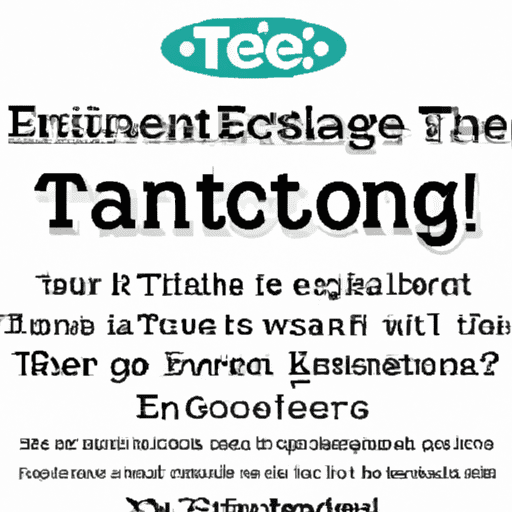The Importance of Humor in Marketing
Introduction
Marketing is an ever-evolving field, and businesses are constantly searching for new and creative ways to grab customers’ attention. One powerful tool that has proven to be incredibly effective in cutting through the clutter is humor. Incorporating humor into marketing can engage audiences, build brand loyalty, and ultimately drive sales. In this article, we will explore the importance of humor in marketing and provide examples of successful campaigns that have leveraged laughter to leave a lasting impact on consumers.
The Science Behind Humor
A good laugh triggers a positive emotional response in our brains, releasing endorphins that make us feel good. When it comes to marketing, this positive association can be incredibly beneficial for brands. By incorporating humor into their campaigns, businesses can create a memorable and enjoyable experience for their audience. With humor, marketing messages become more relatable, engaging, and shareable.
Research shows that humor can influence consumers’ attitudes and behaviors. A study published in the Journal of Marketing found that humorous ads not only generate a more favorable attitude toward the product or service being advertised but also create greater recall and purchase intentions. Humor has the power to break through resistance and skepticism, making consumers more open to receiving marketing messages.
The Benefits of Humor in Marketing
1. Increased Attention: In a world of information overload, grabbing attention is crucial for marketers. Humor can serve as a hook, immediately capturing people’s interest and enticing them to pay attention to the message being conveyed.
2. Memorability: Humorous marketing campaigns are more likely to be remembered. When people enjoy an advertisement, they are more likely to share it with others, increasing brand exposure and potentially going viral.
3. Relatability: Humor allows marketers to connect with their audience on a personal level. By addressing common experiences or pain points with a touch of levity, brands can build rapport and establish an emotional connection.
4. Brand Differentiation: Humor can help brands stand out from the competition. By injecting personality into their marketing efforts, businesses can create a distinct identity that sets them apart and fosters brand loyalty.
5. Positive Association: When we associate positive emotions with a brand, we are more likely to have a favorable opinion of it. Humor can create a positive brand association, making consumers more receptive to their messaging and more likely to make a purchase.
Examples of Successful Humorous Marketing Campaigns
Old Spice: “The Man Your Man Could Smell Like”
Old Spice’s campaign featuring the iconic “Old Spice Guy” commercials was a massive success. By using exaggerated humor, the brand targeted both men and women with a humorous take on masculine stereotypes. The campaign successfully repositioned Old Spice as a modern, edgy brand, resulting in a significant increase in sales.
Dollar Shave Club: “Our Blades Are F***ing Great”
Dollar Shave Club disrupted the razor industry with its hilarious and straightforward marketing campaign. Their viral video, featuring the company’s CEO, delivered a memorable punchline that resonated with consumers. The humorous approach helped Dollar Shave Club gain instant recognition and establish itself as a major player in the market.
Blendtec: “Will It Blend?”
Blendtec’s “Will It Blend?” series of videos featured the company’s founder blending various objects, including iPhones and golf balls, in their blenders. The humorous and over-the-top approach showcased the product’s durability in a captivating and memorable way. The campaign helped Blendtec gain a cult following and significantly boost their sales.
The Closing Summary
In conclusion, humor plays a crucial role in marketing. By tapping into the power of laughter, brands can effectively cut through the noise and create a memorable and enjoyable experience for their audience. The benefits of incorporating humor in marketing campaigns are numerous, from increased attention and memorability to relatability and brand differentiation. To ensure success, brands must strike the right balance between humor and their overall messaging, finding the perfect blend of entertainment and relevance. So, next time you’re crafting a marketing campaign, remember that a well-placed joke might just be the key to capturing consumer hearts, minds, and wallets.

